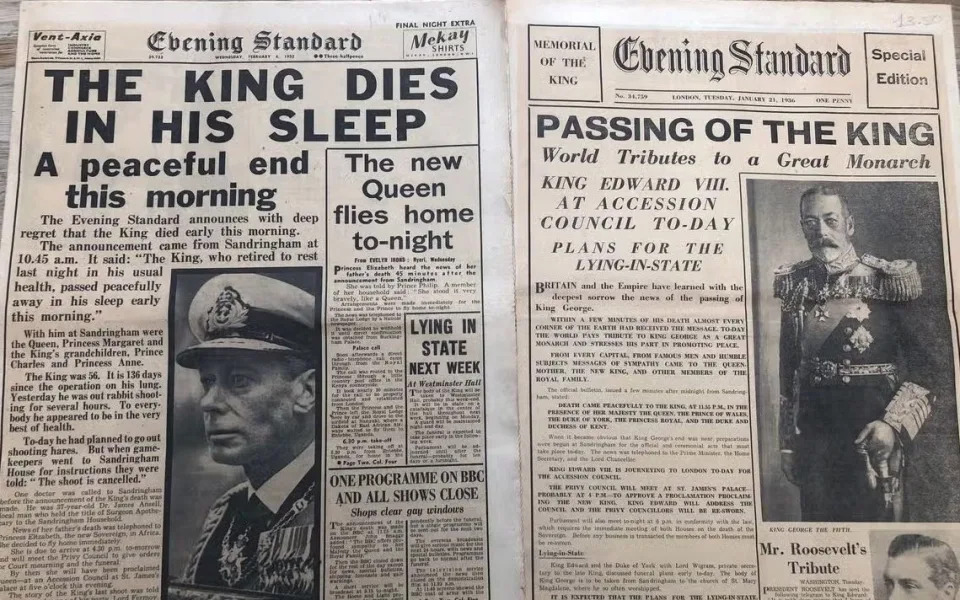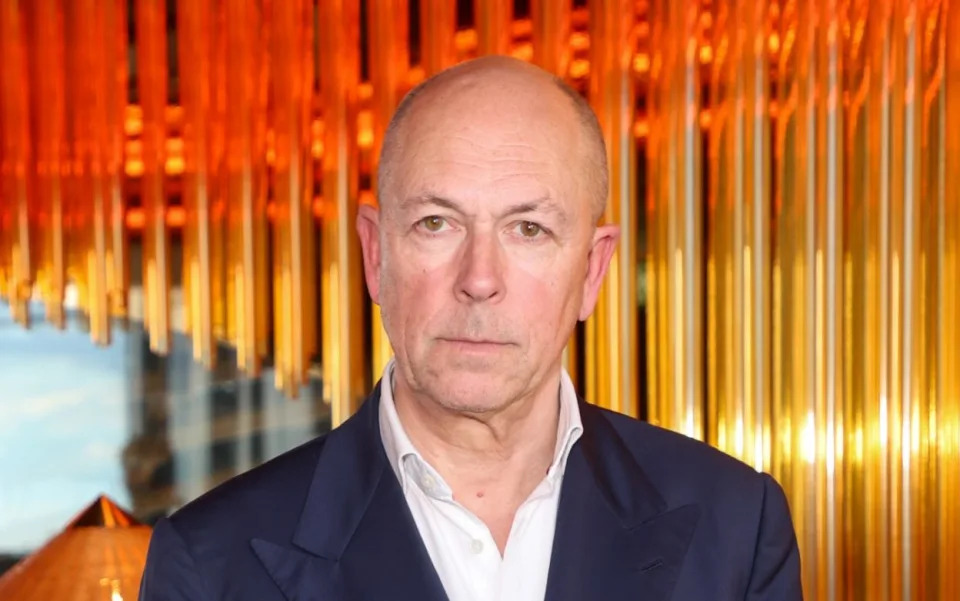The party is being gripped by a huge row over whether the veteran MP should be allowed to stand again for Parliament
NICHOLAS CECIL, POLITICAL EDITOR @NICHOLASCECIL
Sir Keir Starmer has refused to back Diane Abbott standing at the general election for the party as it looks to have a slate of candidates for the “future”.
Senior Labour figures sought to put a lid on the public row over whether the veteran MP, aged 70, should be allowed to stand again as MP for Hackney North and Stoke Newington.
Deputy Leader Angela Rayner and six union bosses have thrown their support behind Ms Abbott, Britain’s first black female MP.
Ms Abbott, who was suspended from the Labour Parliamentary Party over comments she made about racism, had the whip restored earlier this week.
This was seen at Westminster as part of a plan to allow her to retire as an MP with dignity after her decades-long parliamentary career.
But a huge row erupted after The Times was briefed that the Leftwinger was being barred from standing as an MP.
She later confirmed to The Standard that she believed she was being stopped from standing.
Speaking to BBC Radio Scotland during a visit north of the border, Sir Keir said the decision on Ms Abbott standing for Labour would be made by the party’s ruling National Executive Committee (NEC).
“Diane Abbott has had the whip returned to her, no decision has been taken to bar her from standing and the NEC will come to a decision in due course,” he said.
Asked if he would like her to be a candidate, the Labour leader added: “Ultimately, that will be a matter for the NEC but no decision has been taken.”
He also praised Ms Abbott, first elected in 1987, as a “trailblazer”.
Shadow science secretary Peter Kyle echoed the “trailblazer” praise and that it was a decision for the NEC.
He added that the issue should be treated with “privacy” and in a “sensitive way as possible”
He told BBC Radio 4’s Today programme: “Diane Abbott was a trailblazer, we have a lot of respect for that.
“This election, though, is about the future and the NEC will be making sure that our party is fit for the future.”
He also stressed that Sir Keir was seeking to impose “standards” in the party after a string of controversies.
Labour withdrew the whip in April 2023 from Ms Abbott after she suggested Jewish, Irish and Traveller people experienced prejudice, but not racism all their lives.
She later said that she wished to "wholly and unreservedly withdraw my remarks and disassociate myself from them".
By shunning Diane Abbott, Keir Starmer's Labour has doubled down on its anti-black purge, ostracising minority voices in the process, writes Richard Sudan.
Richard Sudan
31 May, 2024

If Labour can do this to Diane Abbott in opposition, what might they do in power, asks Richard Sudan [photo credit: Getty Images]
No matter how many black votes Keir Starmer manages to salvage in this summer's general election, they won't be an endorsement of his candidacy but a rejection of the Tory government and the crisis in its wake.
Many disillusioned black voters, however, will likely sit this one out. Starmer's Labour has seriously eroded trust among black and minority communities in the UK, and the damage may be beyond repair.
Earlier this year I wrote in The Voice — the UK's only black national newspaper, that "Keir Starmer doesn't care about black people". Sadly, Labour's actions this week have only confirmed this suspicion. For many black people in the UK, the party they'd been loyal to for decades is no longer for them.
"Labour may win a first term, but they may have now lost the support they need for a second"
We've finally reached the end of our tether. Our patience has reached an end. The relationship has fractured. The idea that black people are permanently wedded to Labour has run its course.
And the Labour Party's handling of Diane Abbott MP — the UK's first black MP and sitting Member of Parliament for 37 years — might be the final nail in the coffin.
Keir Starmer's left-wing purge continues
The reaction, outrage, and protests at Labour's treatment of Keir Starmer is the clearest measure of this increasingly messy betrayal. The prolonged and opaque process surrounding the Hackney North and Stoke Newington MP's suspension — and the contradictory statements from Labour as to Abbott's fate — is a crisis of Labour's own making.
The revelation that the investigation — which kept Abbott suspended for over a year — actually concluded months ago is beyond shocking. It's been a bombshell for our communities. We've been lied to and thoroughly disrespected, yet again.
Malcolm X was an ally to the oppressed. That's why he matters
Whatever mistake Diane Abbott has made she's paid and apologised for. Ill-judged comments do not warrant how Labour has treated the black British stateswoman. Suspending her for over a year is completely disproportionate and without precedent.
It really seems that the delay in releasing the findings of the investigation is a snide ploy and blunt strategic manoeuvre to limit Diane Abbott's influence. Abbott herself criticised the investigation process as fraudulent pointing out the factionalism within Labour that targets black and non-white members disproportionately.
This will have taken a toll on her — she's already received more abuse than any other MP. Juxtapose Abbott's treatment with other MPs, white men, who've been swiftly readmitted to the party having made serious antisemitic comments and done far worse.
Darren Rowell is Labour's parliamentary candidate in Barking despite having made horrendous anti-black comments. Labour frontbencher Steve Reed implied that a Jewish Tory party was a "puppet master". Both cases, predictably, received little press attention.
After Diane Abbott, will the black vote shun Labour?
Hypocrisy, the treatment of Diane Abbott, and the Forde report — which showed that the Labour Party had normalised a culture of anti-black racism within the party — will all be issues in the back of our minds on July 4.
The backlash against Labour’s handling of Abbott’s case, in particular, is profound, and I believe will be a decisive factor in the outcome of the election. Labour may win a first term, but they may have now lost the support they need for a second.
Black and Muslim communities, of which there exists an intersection, will not forgive Keir Starmer for his actions towards Abbott and Gaza.
How the Gaza war loomed over UK's Labour Party conference
But it's not just the treatment of Diane Abbott which is deeply concerning, it's who she is and what she represents to the UK black community. We see the attack on her as an attack on us. Her treatment shows us what we can expect from Labour should they be elected into government; a litmus test of how they view us as the black community and black voters. If Labour can do this to Abbott in opposition, what might they do in power?
Labour's handling of Abbott's suspension is, simply put, a spectacular failure to read the room. It shows sublime ignorance and breathtaking indifference. Diane Abbott represents progress and advocacy within the black community. Her career is characterised by relentless campaigning against racism and inequality, living, enduring, and overcoming obstacles familiar to many of us.
Black people are demanding reparations. It's time to listen
The prolonged suspension and the opaque handling of her case raise serious questions, and possibly damning answers, about Labour’s commitment to racial equality, fair treatment, and judgement.
The calls for Diane Abbott to remain a Labour candidate are not just about one individual’s career, or about the right of constituents to choose their member of parliament, but about addressing a broader issue of justice and representation.
I’d need a thesis to name all of the great parliamentary candidates, and potential candidates who’ve been blocked or sidelined by Labour and the same goes for councillors too. It’s a shameful cynical attack on democracy and is rolling back progress by decades.
Two years ago I thought Starmer was a mediocre technocrat and an out-of-touch centrist regarding his stance on race equality. But it’s more than that. His primary concern is power, not principle, and this makes him dangerous. He’s certainly changed the Labour Party as he liked to remind us – he’s purged it of all of the individuals and ideas which made it popular several years ago and saw membership rise significantly.
What has happened to Diane Abbott is horrendous, but if she isn’t safe then no one is. Several other black MPs have told me recently that they seriously fear deselection. Purge is the common phrase used to describe his control of Labour and it’s entirely appropriate.
Did Keir Starmer misrepresent Welsh Muslims on purpose?
Last year, in a Q&A with the Guardian, Starmer said the trait he most deplores is disrespect. His treatment of Diane Abbott however, suggests it should be at the top of his CV.
You don’t have to agree with Abbott on every issue to acknowledge and condemn the injustice in her treatment. As an MP her positions have often sparked debate. She’s a politician and not beyond criticism. But her consistent championing of social justice, anti-racism, and equality for decades has been steadfast and at the least means she should be permitted to stand and remain as the representative of her constituents if they so choose.
Anything less is an affront to democracy and a direct insult to black communties.
As the general election approaches, how Labour navigates this issue will be crucial. It is not only about Abbott’s future but also about the party’s relationship with its Black supporters and its broader commitment to fairness and equality.
Richard Sudan is a journalist and writer specialising in anti-racism and has reported on various human rights issues from around the world. His writing has been published by The Guardian, Independent, The Voice and many others.
Follow him on Twitter: @richardsudan
Buckle up, folks.
by Aaron Bastani
29 May 2024
Posters supporting Diane Abbott, who has been barred from standing for Labour at the next general election. Thomas Krych/Reuters
The verdict is in: Diane Abbott will be blocked from standing for the Labour party at the forthcoming election. Could the former shadow home secretary be replaced by a man who describes himself as a “zionist shitlord”? Maybe. Because Labour really is that weird now.
Abbott has been an MP since 1987, making her one of Westinster’s longest serving parliamentarians. While she was Britain’s first black female MP, she was for much of her career better known to the public through her weekly appearances alongside Michael Portillo and Andrew Neil on the BBC’s ‘This Week’.
But then something strange happened: the British left achieved a modicum of power. And so national treasure in waiting, along with Westminster’s resident niceguy (Jeremy ‘allotment-man’ Corbyn) were demonised faster than you can say ‘red scare’.
Both Abbott and Corbyn have lost the whip at different points during Starmer’s leadership. Last week, it was confirmed that Corbyn would not have the option of contesting his Islington seat as a Labour candidate. Abbott has now seemingly met the same fate.
Yesterday, Newsnight’s Victoria Derbyshire broke the news that Abbott’s disciplinary process was settled late last year. Labour subsequently briefed the media that the whip had finally been restored to the Hackney MP. But this, apparently, is a temporary dispensation, and Abbott won’t be allowed to stand again for Labour under any circumstances.
Speaking on Newsnight, the BBC’s Nick Watt described how sources close to Starmer described Abbott as an “icon”, but said she couldn’t stay in the parliamentary party. Why? Because she’s associated with the failure of 2019. This would make more sense if Starmer hadn’t also been a leading Labour light that year, or the party hadn’t recorded a higher share of the vote than in either 2010 or 2015 (Ed Miliband is in Starmer’s shadow cabinet too, remember).
Watt added how his source claimed Abbott “comes up on the doorstep”. While that’s hard to believe, if it’s accurate, then why is her case any different to that of Liam Byrne – who famously left a note to his Tory successor in 2010 claiming there was no money left? Rightwing rent-a-gobs still bang on about that 14 years later.
And here’s the most important part. As recently as last Friday, Starmer told the BBC that Abbott was “going through, and being part of, and getting to the end of … a disciplinary process because of something she has said”. Yet we now know that this process didn’t end last week, but six months ago. So either Starmer didn’t know it had been completed or – more likely – he lied. The latter appears to be something of a habit.
This charade is made all the more grotesque by the fact that Labour, in response to the news that Tory donor Frank Hester said Abbott “should be shot”, sent a fundraising email asking for money. Trying to profit from someone else’s misery – which you soon intend to compound – would seem deeply dishonourable to any normal person. But then again, ‘honourable’ isn’t a word you’d associate with the permanent political class.
Who might Labour seek to replace Abbott? One option would be Mete Coban – a councillor so relentlessly committed to Hackney he recently tried his luck in Kensington. Anntoinette Bramble and Sem Moema are two other names who have been mentioned.
But I’d expect many more to be interested. After all, Hackney North and Stoke Newington has a large majority, is a short distance from the Houses of Parliament and – let’s be brutally honest – has some of the best restaurants and bars in the country. The natural wines at Cadet are a must. Or so I’m told.
One person who may be eyeing up the seat is Luke ‘the Nuke’ Akehurst. After all, he previously lived in Hackney for 16 years, serving as a councillor for 12 of them. Could one of the great civil libertarians of recent years be replaced by someone who thinks the good guys in the Vietnam War were… the Americans? That would certainly say something about the direction of British politics.
Aaron Bastani is a Novara Media contributing editor and co-founder.
by Moya Lothian-McLean
30 May 2024
Faiza Shaheen, who has been barred from standing as the Labour candidate for Chingford and Woodford Green. John Sibley/Reuters
The era of “Grey Labour”, as writer Alex Niven has dubbed the current iteration of the parliamentary Labour party, has been marked by u-turns and discarded pledges. But in one crusade, Keir Starmer and his kingmakers have remained steadfast from the start: purging the left.
With a surprise election on the horizon, that offensive has stepped up a gear. Last week, Labour HQ confirmed that Jeremy Corbyn would not be able to stand for re-election as a Labour MP in Islington North, after keeping the former leader in limbo since suspending the whip in 2020. Corbyn promptly launched a campaign to represent his constituency of 41 years as an independent.
Yesterday, though, came a flurry of action that I’m dubbing ‘Grey Labour’s Night of the Butter Knives’, as a series of vocally leftwing MPs and prospective parliamentary candidates were blocked from representing the party. It began with a Times exclusive: after months of obfuscation from the Labour leadership, Diane Abbott, Britain’s first Black female MP, was going to be banned from reselection.
At first, both Abbott and Starmer refuted these reports. But by Wednesday evening, Abbott had confirmed the rumours, telling the crowd at a local rally that she had been “banned from standing as a Labour candidate”. She also took to social media to condemn the wider “cull of leftwingers” conducted throughout the day.
Those leftwingers included sitting MP Lloyd Russell-Moyle and party activist Faiza Shaheen, who was, until 12 hours ago, the Labour candidate for Chingford and Woodford Green. Both are firmly on Labour’s left; Russell-Moyle is a member of the Socialist Campaign Group of MPs, and Shaheen has been dubbed the ‘Chingford Corbynista’ by rightwing newspapers.
Russell-Moyle told Novara Media yesterday that he had been informed of his “administrative suspension” as a result of a historic complaint he deems “vexatious and politically motivated”. He won’t be able to contest the complaint in time for the 4 June cut off period for selecting candidates, meaning he is effectively barred from restanding.
Shaheen has suffered a similar indignity: after five years of diligent campaigning as the Labour candidate apparent – and toeing an increasingly draconian line (which occasionally attracted her critique from fellow leftwingers) – her candidacy has been blocked at the last minute by Labour’s National Executive Committee (NEC).
In an emotional interview with BBC Newsnight, Shaheen told presenter Victoria Derbyshire that Labour’s NEC proffered 14 tweets as grounds for her deselection, including ones where she discussed her experiences of Islamophobia within Labour. The NEC had also flagged a tweet Shaheen ‘liked’, which detailed how mild critique of Israel is subject to intense, “hysterical” pushback.
“Moreover, you can’t easily ignore them because those are not just random people,” the supposedly offending tweet read. “They tend to be friends or people who move in the same circles as you. Those people are mobilised by professional organisations.”
Shaheen said she had no memory of ‘liking’ the tweet and apologised for “play[ng] into a trope” by citing “professional organisations” acting in Israel’s interests.
As Shaheen struggled not to cry on live TV, news dropped that Luke Akehurst – Labour NEC member and director of professional Zionist lobbying organisation We Believe in Israel – had been selected without consultation for the safe seat of North Durham.
His candidacy is one of several declared in the last few days, as a slew of Labour MPs – including the brother-in-law of Rachel Reeves – have announced conveniently last-minute retirements. This has freed-up seats for Grey Labour allies to be parachuted in without input from local constituency parties under new selection rules approved by Labour’s NEC last year.
Alongside Akehurst, Josh Simons, director of the powerful pro-Starmer think tank Labour Together, has already been confirmed as one of these candidates, as has lobby journalist Paul Waugh and former Camden council leader Georgia Gould.
The key takeaways here are twofold. Firstly, the faction behind Starmer doesn’t think that this sort of political manipulation – that which disproportionately excludes and disrespects leftwing MPs and candidates from minority groups – matters to the wider electorate. And to most, it probably doesn’t. It won’t stop Labour winning the general election. But it will further disillusion amongst some of Labour’s traditional voter base, already appalled by the right of the party’s war on anything deemed ‘left’ which is currently expressed through attacking anyone publicly opposed to the genocide in Gaza.
There is quite obvious racism at play here – just look at the targets of Labour’s purge. Look at the excuses used to banish them from the party they’ve dedicated lives to, while a lobbyist for a foreign power, currently under investigation for war crimes and genocide, is allowed to stand as a Labour representative. Look at who is shut out and who is welcomed with open arms.
There will be more such examples to come as 4 June approaches. Already Apsana Begum, the socialist MP for Poplar and Limehouse, seems at risk of a fresh deselection attempt after she previously accused Labour of “weaponising” her domestic abuse to push her out of the party. I worry about where the voters alienated by Labour’s machinations will go; which new, economically left but socially conservative parties they might end up clinging to, lured in by those taking unequivocal pro-Palestine stances – but at the cost of ignoring anti-climate change and anti-LGBTQ messaging.
The second conclusion is that Starmer has lost internal authority – if he ever had it to begin with. The purging operation has been a mess of leaks and counter-briefings, piecemeal rumours and rogue emails, all of which expose Labour’s internal wranglings to the general public and make Starmer himself seem weak and out of the loop. Labour right bods boosted into safe seats are also often political hot potatoes, with pasts far more chequered than those leftwingers who have been expelled – risky people that any canny political strategist would not put front and centre.
The fact is that the faction that ushered Starmer into the leadership, and now seeks to install him in Number 10, has little regard for its own figurehead or his – and the party’s – wider reputation. As reported by Politico London, Labour campaign chief Morgan McSweeney’s eradication operation is going down “poorly” across the political spectrum.
“Starmer isn’t in control,” one Labour insider told me. “He wants to run the country, but he can’t even run his own office.”
This article was amended on 30/05/2024 to reflect that Faiza Shaheen ‘liked’ a tweet referring to professional organisations mobilising pro-Israel support, and did not author it.
Moya Lothian-McLean is a contributing editor at Novara Media.
Labour Leadership Disappointed By “Unwelcome Distraction” Of Diane Abbott Row
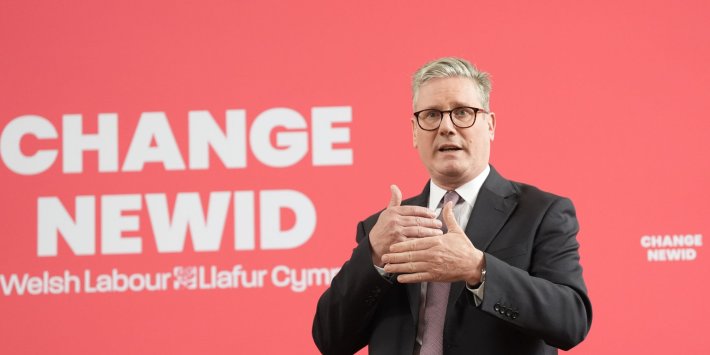
Keir Starmer speaks at the launch of Labour's six steps for change in Wales on the General Election campaign trail in May 2024 (Credit: PA Images / Alamy)
The Labour leadership is disappointed by the way that the row over longtime MP Diane Abbott’s candidacy has become an “unwelcome distraction”, PoliticsHome understands.
After having the Labour whip withdrawn last year due to alleging that Irish people, Jewish people and Travellers do not experience racism "all their lives”, in comments for which she apologised, Abbott had the whip restored earlier this week.
But it was reported by The Times the same day that Abbott was being barred from standing for re-election. On Thursday, Labour leader Keir Starmer denied that the decision had been made to stop Abbott from being a Labour candidate, and deputy leader Angela Rayner went further. “I don’t see any reason why she can’t stand,” she said on Thursday.
Labour sources say there was a plan agreed that would see the leadership restore the whip and Abbott subsequently announce her retirement – but the briefing to The Times disrupted the arrangement.
A source close to the leadership said the row over Abbott was the result of “tragic miscommunication” and “macho” briefing, and it has become an “unwelcome distraction” during the election campaign.
Related
Local Figures Line Up To Succeed Diane Abbott As Labour Candidate
By Sienna Rodgers
29 May
"Nobody wants this – a load of internal focus – we want to get on with speeches in factories about employment rights," they added. "But in some ways it’s better to get it out of the way before nominations close."
Shadow cabinet member Peter Kyle hinted on Friday morning that Abbott would indeed be barred. “Diane Abbott was a trailblazer… This election, though, is about the future and the NEC will be making sure that our party is fit for the future,” he told the BBC.
The row over Abbott was fuelled further by the deselection on Wednesday of Faiza Shaheen, a left-wing candidate in Chingford and Woodford Green. She said she would be discussing “next steps” with her legal team.
Leadership-favoured Shama Tatler, a Brent councillor who had expressed an interest in the Queen’s Park and Maida Vale constituency, was swiftly chosen by Labour's national executive committee on Thursday to contest the seat.
Shaheen reacted to the news by tweeting: “Really?! Wow a Brent councillor with no history here at all. They would rather lose than have a left pro Palestine candidate. This is offensive to my community”.
There was also disquiet over the suspension of Lloyd Russell-Moyle, who was the incumbent candidate for Brighton Kemptown, following a complaint that was investigated by the party last weekend. He is no longer eligible to stand as a Labour candidate as there is not enough time to conclude the full investigation process before the candidate nominations deadline next week.
It was widely assumed the move against Russell-Moyle, who is on the party’s left, was a factionally motivated attack. However, the complaint against him is believed to have come from the left – specifically, someone who was removed from the Labour Party for antisemitism.
Russell-Moyle has described the complaint, which is about his behaviour eight years ago, as “vexatious and politically motivated”.
A Labour Party spokesperson said: "The Labour Party takes all complaints extremely seriously and they are fully investigated in line with our rules and procedures, and any appropriate disciplinary action is taken."
Chris Ward, a close friend of Starmer who worked as his aide for six years, has been chosen as Labour’s candidate for Brighton Kemptown.
Other Labour selections announced on Thursday include trade unionists – Unison's Mark Ferguson and Usdaw's Michael Wheeler, who are also NEC members, plus Community union's Kate Dearden – and NEC member Gurinder Singh Josan.
Former Starmer staffer Uma Kumaran was also made a candidate. All were chosen directly by NEC panels under emergency selection procedures.
Keir Starmer distances himself from Angela
Rayner in row over Diane Abbott
The Labour leader broke with Ms Rayner and declined to give a view on whether the veteran left-winger should be allowed to run as a Labour candidate
Archie Mitchell,David Maddox
Keir Starmer denies Labour 'left-wing cull' after Faiza Shaheen blocked from election
Sir Keir Starmer has distanced himself from Labour deputy leader Angela Rayner and refused to say if he would like Diane Abbott to stand in the general election.
The Labour leader broke with Ms Rayner and declined to give a view on whether the veteran left-winger should be allowed to run as a Labour candidate.
A day earlier, the Labour deputy said “as the deputy leader of the Labour Party… I don’t see any reason why Diane Abbott can’t stand as a Labour MP going forward”.
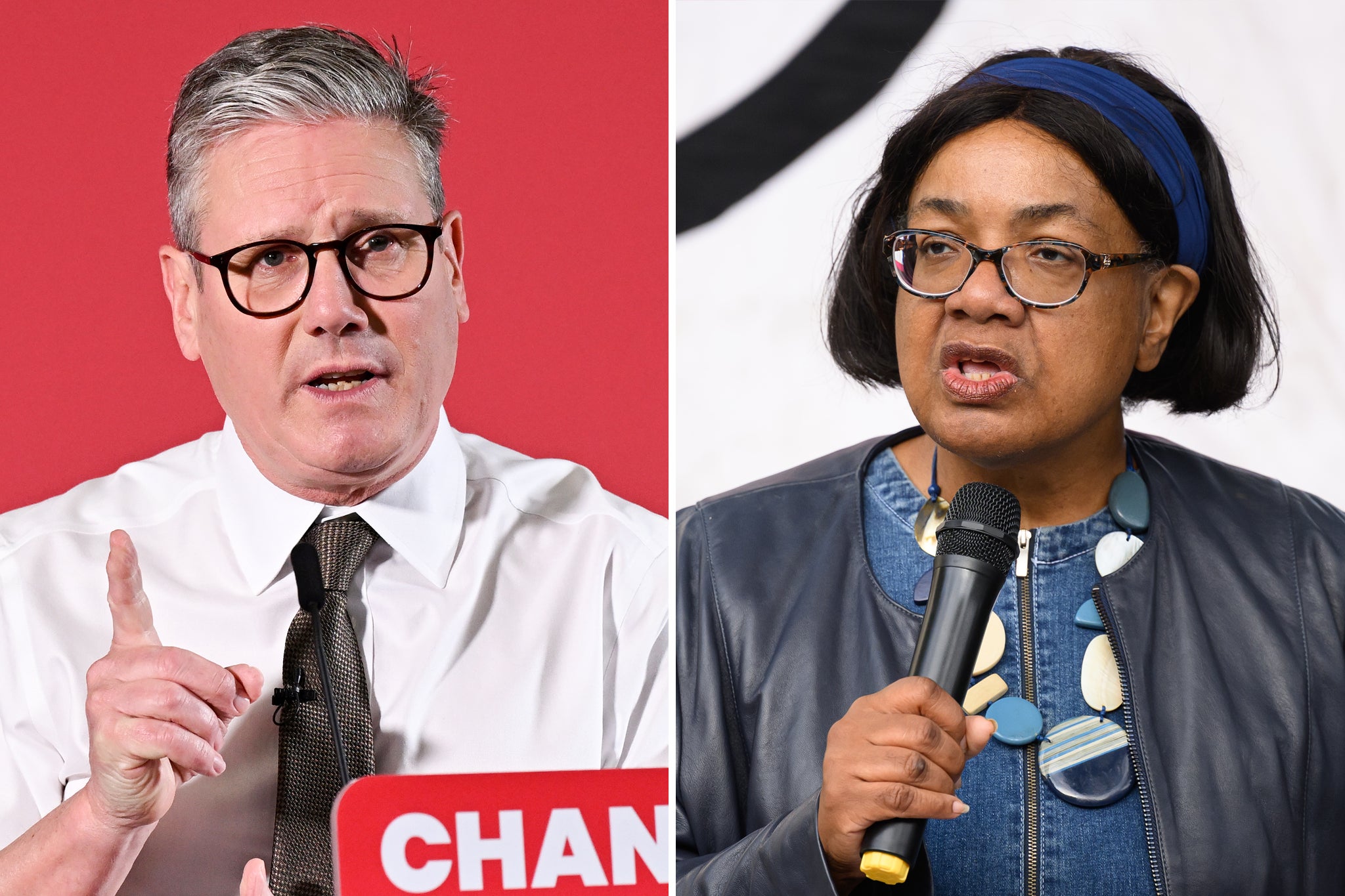
She heaped praise on Ms Abbott, describing her as an inspiration and a trailblazer. And Ms Rayner appeared to take aim at Sir Keir and his inner circle, stressing that she is “not happy” about negative briefings to newspapers about Ms Abbott from senior Labour sources.
“I don’t think that is how we should conduct ourselves,” she told ITV.
Asked by BBC Radio Scotland for his own view on whether Ms Abbott should be allowed to run for Labour on 4 July, Sir Keir said a decision would be made by the party’s ruling National Executive Committee (NEC).
"Diane Abbott has had the whip returned to her, no decision has been taken to bar her from standing and the NEC will come to a decision in due course," he said.
Asked if he would like her to be a candidate, Sir Keir added: "Ultimately, that will be a matter for the NEC but no decision has been taken."

He also praised the MP - the first Black woman to be elected to the Commons - as a "trailblazer".
Despite heaping praise on Ms Abbott, he refused to follow Ms Rayner in giving a personal view on whether he would like to see her continue as a Labour MP.
Ms Abbott was given the Labour whip back this week, but it was briefed out that she would be “barred” from running as a Labour candidate in the general election.
It had been suggested she was planning to retire, but at a rally in support of her on Wednesday Ms Abbott declared that she would stand for parliament again.
Unions have backed Ms Abbott, with TUC president Matt Wrack warning against double standards being applied.
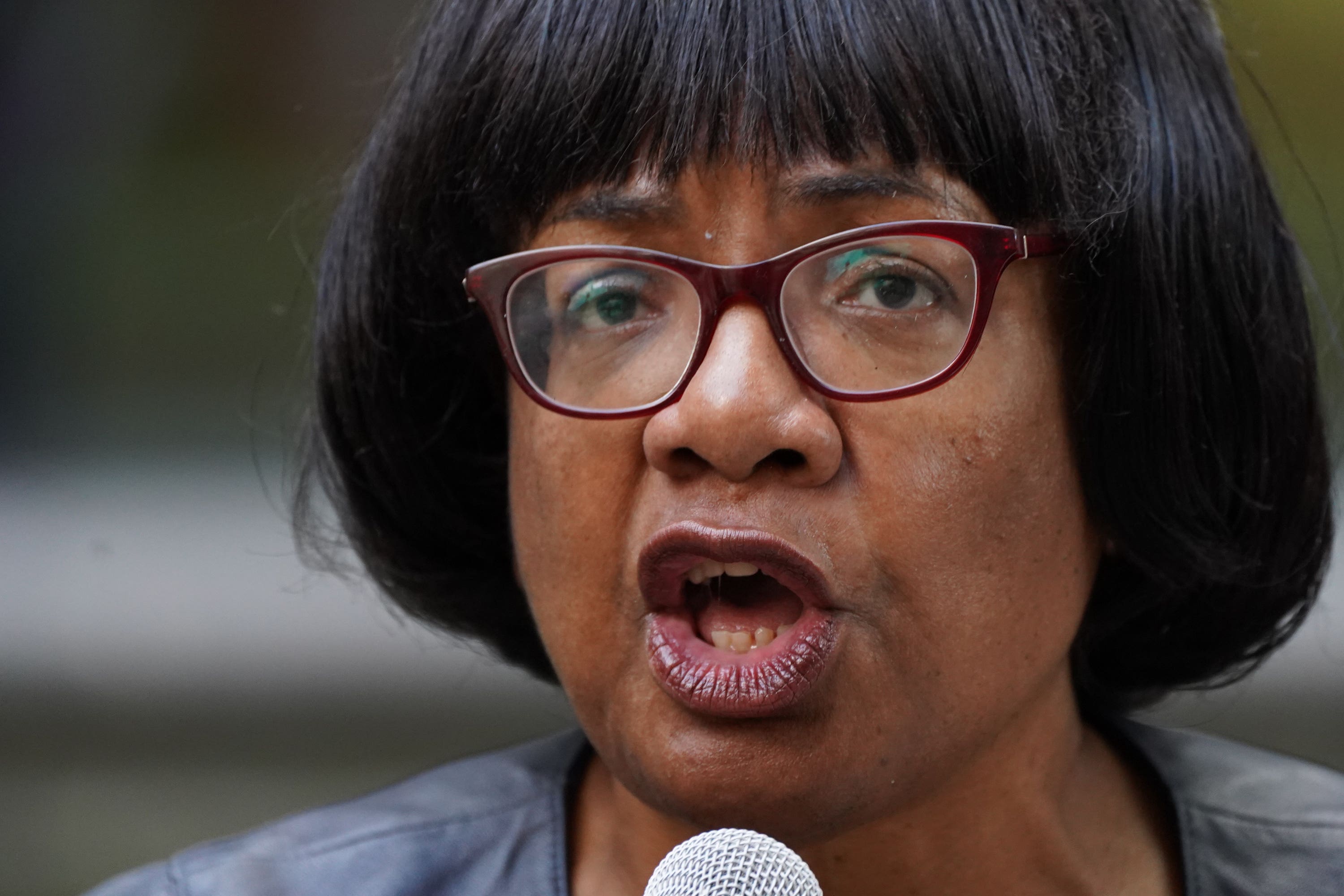
Mr Wrack, who is also the Fire Brigades Union general secretary, said: “Diane Abbott is a powerful, popular advocate for Labour. She and other candidates have been treated in an appalling manner.
“There are clearly double standards in how they have been treated as left-wingers and as women of colour when compared to more centrist MPs.”
Ms Abbott said on Thursday she has met with leading trade unionists who have offered her their backing to be a Labour candidate at a meeting next week of Labour’s NEC.
The deadline for the party to rubber stamp its general election candidates is 4 June
Labour must unite and reinstate barred candidates – Matt Wrack, FBU
Matt Wrack, Fire Brigades Union General Secretary
In recent days, there have been conflicting reports about the status of Diane Abbott as a parliamentary candidate. Other left wing Labour candidates have also reportedly been barred from running.
Matt Wrack, Fire Brigades Union general secretary, said:
“After 14 years of austerity, misery and chaos, people are sick of the Tories. Now is the time for Labour to unite to sweep them from power.
“Diane Abbott is a powerful, popular advocate for Labour. She and other candidates have been treated in an appalling manner.
“There are clearly double standards in how they have been treated as left wingers and as women of colour when compared to more centrist MPs. It is only a matter of weeks since hard-right Tory Natalie Elphicke was welcomed with open arms.
“This has all been an embarrassing distraction. The Labour leadership must now act decisively to reinstate the affected candidates and ensure that no one is barred from standing at the last minute with no due process.”
- Six Labour-Affiliated Trade Union General Secretary have written to Keir Starmer calling on the Labour Leader to let Diane run as Labour Candidate.
- Labour Peers Baroness Christine Blower and John Hendy KC have written to Keir Starmer delivering a 17,000-strong petition calling for Diane Abbott to be Labour’s candidate.
- Young Labour and Labour Students members have called on the Labour Leader to confirm that Diane Abbott will be the Labour candidate for Hackney North and Stoke Newington.
- This article was originally published by the Fire Brigades Union (FBU) on May 30th, 2024.
10,000s back Diane – Labour Lords write to Keir Starmer saying let her stand
Letter to Keir Starmer from Baroness Christine Blower & Lord John Hendy KC
By Matt Willgress, Labour Outlook
Two well-respected, decades-long labour movement campaigners who are current Labour members of the House of Lords have written to Keir Starmer to deliver in behalf of its signatories a petition in support of Diane Abbott. It has been signed by over 17,500 people from over 550 parliamentary constituencies.
The petition was initiated by the Labour Assembly Against Austerity and Arise – a Festival of Left Ideas.
Their letter reads as follows:
Dear Sir Keir,
We are writing to draw your attention to the fact that over 17,5000 people have now signed this petition in support of the PLP whip to be restored to Diane Abbott petition.
In light of this level of support, the idea that Diane Abbott should not also be permitted to stand as a Labour Party candidate in the forthcoming general election is unthinkable.
As the General Secretaries of ASLEF, the CWU, FBU, NUM, TSSA and Unite said in their recent letter to you on this matter, “For over thirty years – since becoming the first Black woman ever elected to parliament – Diane has stood in every election as a Labour Party candidate.
“We believe that the whip should be restored to Diane and that she should be confirmed as the candidate at the general election for Hackney North and Stoke Newington, which she has represented for so long.”
Yours,
Baroness Christine Blower,
Lord John Hendy KC
- Over 17,500 activists have previously signed a petition to Keir Starmer calling on the Labour Leader to restore the whip to Diane Abbott.
Young Labour & Labour Students members urge Starmer to let Diane Abbott stand
Young Labour and Labour Students members have called on Keir Starmer to confirm that Diane Abbott will be allowed to stand as a Labour MP for Hackney North and Stoke Newington. You can read the statement published below:
As young people and students who are members of the Labour Party, we urge you to confirm that Diane Abbott will be allowed to be the Parliamentary candidate for Labour in her constituency now that the whip has been restored. Diane is a trailblazer who inspires thousands of young people across the country, and is a valuable, popular asset to our party amongst young voters. If the PLP can be a broad enough church to host Natalie Elphicke, then it can surely find a space for Diane, who voters in Hackney clearly wish to be their Labour MP.
Aaron Stringer, Nottinghamshire Young Labour
Anya Wilkinson, Lancaster University Labour Club
Alec Severs, Manchester Labour Students
Alex Bourne, Derbyshire Young Labour
Alex Burt, Leicester Young Labour
Alexy King, NTU Labour Society
Django Perks, Yorkshire and Humber Young Labour
Emily Payne, Warwick University Labour Society
Erin Hall, Lancaster University Labour Club
Fraser McGuire, Manchester Labour Students
Harriet Limb, Derbyshire Young Labour
Harry Wrench, Lancaster University Labour Club
James Varney, Warwick University Labour Society
Liv Marshall, Nottinghamshire Young Labour
Luca Dunmore, Cambridge University Labour Club
Niamh Iliff, Nottingham Labour Students
Ollie Chapman, Warwick University Labour Society
Ollie Probert-Hill, North West Young Labour
Oliver Mousley, Derby Labour Students
Rufus Sammels-Moore, Derbyshire Young Labour
Sohail Hussain, Birmingham University Labour Society
Vanisha Karna, South East Young Labour
Will Jones, Liverpool Labour Students








 Migrant rights campaigners gather outside the French board of education to protest the country’s hostile environment for immigrants, particularly unaccompanied minors, May 2024. Christophe Domec/Novara Media
Migrant rights campaigners gather outside the French board of education to protest the country’s hostile environment for immigrants, particularly unaccompanied minors, May 2024. Christophe Domec/Novara Media















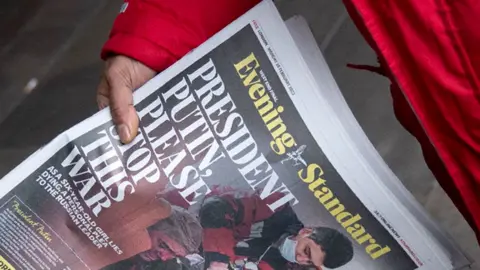 PA Media
PA Media


